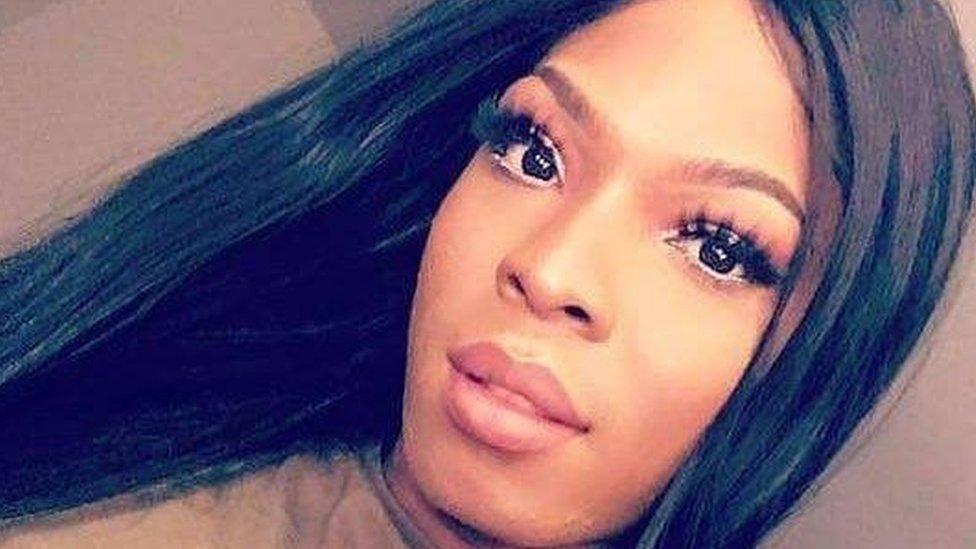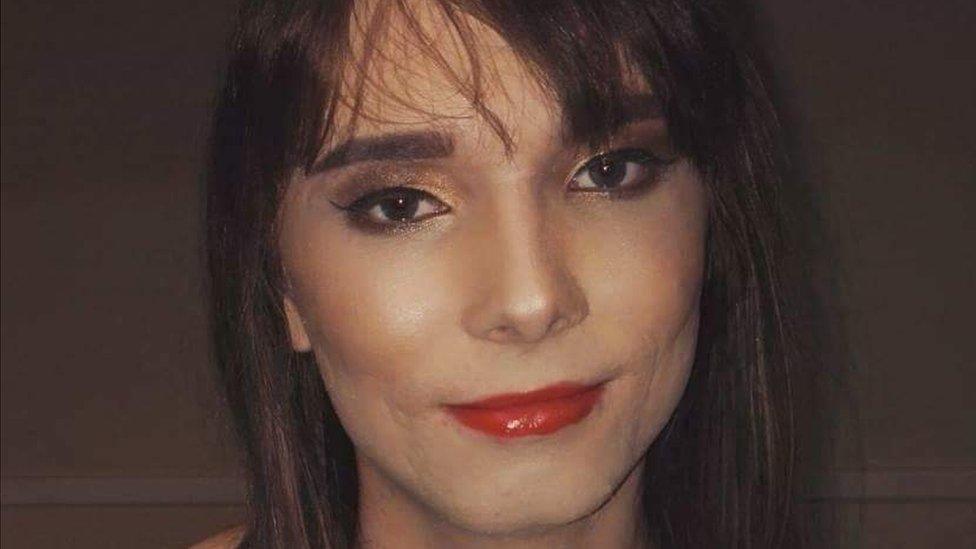Transgender woman shot, killed in US weeks after assault
- Published

No arrests have yet been made over the death of Muhlaysia Booker, who was assaulted last month
A transgender woman has been fatally shot in Dallas, Texas, according to local police.
Muhlaysia Booker, 23, was found dead on a street on Saturday morning, and police are investigating the case as "homicidal violence".
Police said it is unclear if her shooting was a hate crime or motivated by retaliation.
Last month, Ms Booker was assaulted during a traffic accident, which was filmed and shared on social media.
Dallas police have declined to comment on whether she received any death threats before this latest shooting.
They added that there is no evidence linking her murder to Edward Thomas, a 29-year-old man who was charged with assault against her in April.
During the incident, Ms Booker had said she backed into another vehicle whilst reversing out of a parking space. The driver allegedly pointed a gun at her and refused to let her leave unless she paid for the damage.
As a crowd gathered around, police say one onlooker, Mr Thomas, was offered $200 (£156) to beat Ms Booker.
A video of the incident showed Mr Thomas putting on gloves and punching her repeatedly, giving her a concussion and a broken wrist.
Mr Thomas was charged with aggravated assault, but denies allegations that he used homophobic language during the attack.
A second person was arrested for kicking Ms Booker in the face but has not been charged.
Women at risk
Figures show that transgender people, particularly trans women of colour, are disproportionately likely to be the victims of violent attacks in the US.
In many cases, such as Ms Booker's, this violence is fatal.
According to Human Rights Campaign (HRC), at least 26 trans people were killed across the country last year - the majority of whom were African-American trans women.
Its report says that "some of these cases involve clear anti-transgender bias", for example, where the perpetrator may have used transphobic language.
However, in other cases the victims' gender "may have put them at risk in other ways, such as forcing them into unemployment, poverty, homelessness, and/or survival sex work" that leaves them vulnerable to violent attacks.
HRC adds that institutional transphobia, combined with racism, makes it more likely for trans women of colour to not have housing, healthcare or work, leaving them more vulnerable as a result.
- Published20 May 2019

- Published10 April 2019
